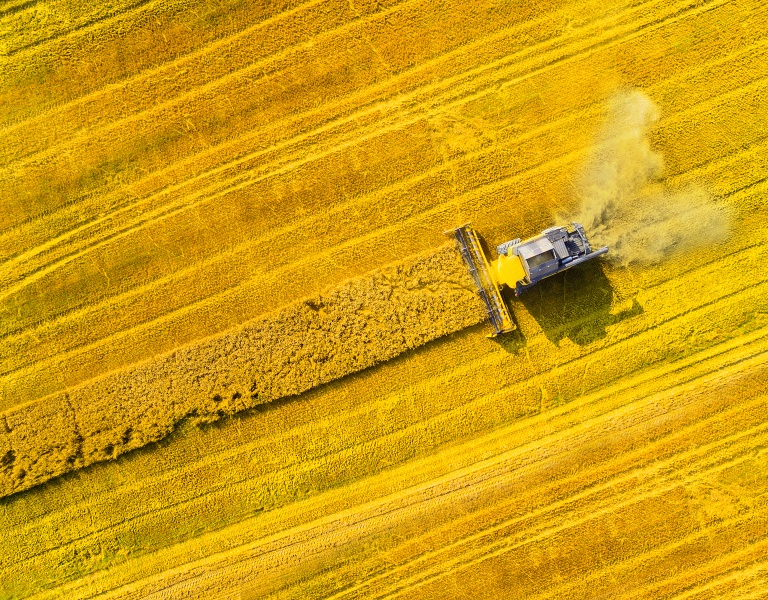Irish Scientist Collaborating on International Biofuel Research
Dr. Stephen Dooley, a Trinity College Dublin researcher specialising in clean energy technologies, was selected through SEAI to participate in the International Energy Agency Technology Collaboration Programme.
Key Achievements
International Collaboration
Partnership with a wide panel of experts with varying research capabilities
Strengthened Research
Research capabilities were strenghened and supported through the IEA TCP programme
Biofuels for Aviation
Identified the use of lipid feedstocks for aviation fuel
Cost Saving Measures
Identified significant cost saving measures through co-processing bio feedstocks and fossil feedstocks
About the project
The International Energy Agency (IEA) is an intergovernmental organisation that works to shape a secure and sustainable future for all. Through the IEA TCP on Bioenergy, a group of international experts were brought together to work on Task 39. The title of this task is 'Commercializing Conventional and Advanced Liquid Biofuels from Biomass'. Dr. Dooley has collaborated on a number of projects in this research field so his portfolio aligns well with Task 39.
There are numerous benefits to participating in an IEA Task such as knowledge procurement and networking. Participation through an IEA Task puts researchers like Dr. Dooley at "the coalface of opinion making and in the forming of perceptions on cutting edge matters of energy policy, research, development and deployment". The collaborative nature allows participants to put forth ideas on how to advance the goals of the Task subject matter.
With Delegates from Japan and Canada, Ireland leads the Feedstock to Biofuels Supply Chain sub-task within Task 39. Their objective is to analyse, identify and disseminate where they see opportunities to reduce capital expenditure (CAPEX) and operating costs (OPEX).
With almost all of our transport energy coming from liquid fuels, the group were looking for affordable solutions to decarbonising transportation systems through the use of bioenergy. Bioenergy is an important component within a country's sustainable energy portfolio. While there are numerous renewable energy options for heat and electricity generation, biofuels are currently the only solution to fossil fuels such as gas, diesel, marine and aviation fuels.
It is not currently possible to make these sustainable, climate-friendly fuels at a cost that is competitive with the incumbent fossil and 1st generation. Understanding how to do all of this is very important for Ireland to maintain and improve its transport mobility and affordability while also decarbonising the sector.
"As a Task delegate you have the opportunity to liaise, build relationships with, and contribute to the information of other delegates. It is an excellent avenue to develop one's knowledge and contacts." Dr Stephen Dooley, Assistant Professor of Energy Science, Trinity College Dublin and Task 39 Participant
Research & Deployment Challenges
The group faced three research and deployment challenges on their undertaking of commercialising advanced biofuels. Challenges lay in finding ways to the make biofuels more affordable and cost competitive with conventional fossil liquid fuels.
- How can we reduce the CAPEX and OPEX costs of biofuel production processes to allow for market competitiveness?
- How do we procure a sufficient and secure supply of high-grade biomass feedstock that is ethical and sustainable?
- How do we best use the advanced and conventional biofuels that we can currently produce, with regard to decarbonisation?
What is a TCP?
The TCP was created with a belief that the future of energy security and sustainability starts with global collaboration. The programme is made up of thousands of experts across government, academia, and industry dedicated to advancing common research and the application of specific energy technologies.
Within each TCP, co-operative research and development projects called Tasks or Annexes are developed. Task/Annex participants from member countries meet on a regular basis to discuss findings, review progress and plan future work, among other things. SEAI supports the participation of appointed experts by covering the TCPs fees, Task/Annex membership fees and approved meetings travel costs.
About the International Energy Agency (IEA)
The IEA is an international organisation that is at the heart of global dialogue on energy, providing authoritative analysis, data, policy recommendations, and real-world solutions to help countries provide secure and sustainable energy for all. Taking an all-fuels, all-technology approach, the IEA advocates policies that enhance the reliability, affordability and sustainability of energy. It examines the full spectrum of issues including renewables, oil, gas and coal supply and demand, energy efficiency, clean energy technologies, electricity systems and markets, access to energy, demand-side management, and much more. For more information, please click here.
SEAI coordinates the call for the appointment of Ireland-based organisations to Tasks/Annexes of the International Energy Agency Technology Collaboration Programmes.
Successful applicants to the call will participate in a research network that has thousands of experts across government, academia, and industry dedicated to advancing common research and the application of specific energy technologies.
